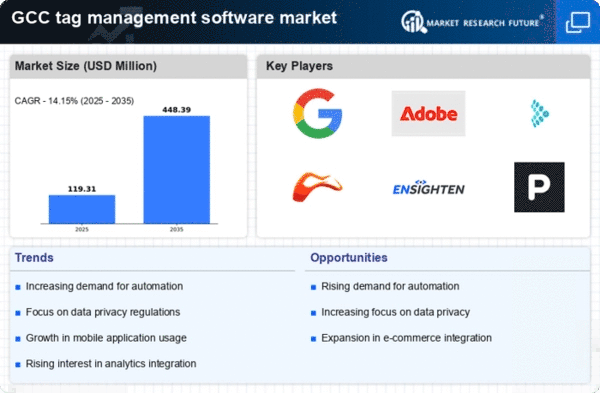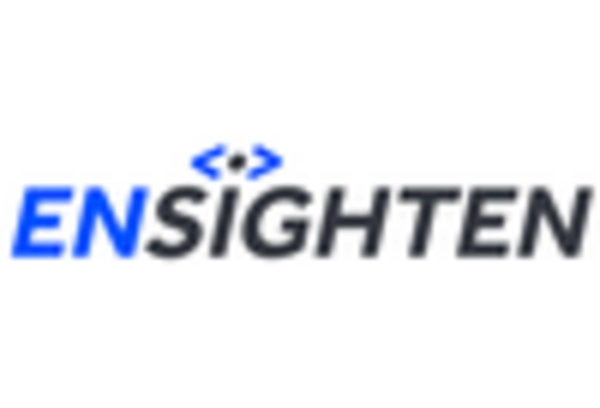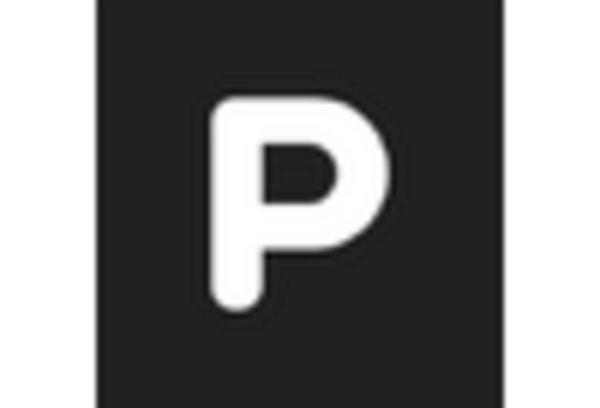Expansion of E-commerce Platforms
The rapid expansion of e-commerce platforms in the GCC is significantly impacting the tag management-software market. As online shopping continues to gain traction, businesses are increasingly seeking solutions that can enhance their digital marketing efforts. Tag management software plays a crucial role in enabling e-commerce companies to efficiently manage their tracking tags, ensuring accurate data collection and analysis. The e-commerce market in the GCC is expected to reach $28 billion by 2026, driven by a growing consumer base and increased internet penetration. This growth presents a substantial opportunity for the tag management-software market, as e-commerce businesses look to optimize their online presence and improve customer experiences through effective data management.
Regulatory Compliance and Data Governance
The emphasis on regulatory compliance and data governance in the GCC is significantly influencing the tag management-software market. With the introduction of stringent data protection laws, organizations are compelled to adopt solutions that ensure compliance with regulations such as the UAE Data Protection Law and the Saudi Personal Data Protection Law. These regulations necessitate the implementation of robust data management practices, which tag management software can facilitate. As businesses strive to avoid hefty fines and reputational damage, the market for tag management solutions is expected to expand. The increasing focus on data governance is likely to propel the adoption of these tools, as companies seek to enhance their data handling capabilities while ensuring compliance with evolving legal frameworks.
Growing Digital Transformation Initiatives
The ongoing digital transformation initiatives across various sectors in the GCC are driving the tag management-software market. Organizations are increasingly adopting digital tools to enhance operational efficiency and customer engagement. This shift is evident as businesses allocate substantial budgets towards digital solutions, with estimates suggesting that spending on digital transformation in the region could reach $40 billion by 2025. As companies seek to streamline their digital marketing efforts, the demand for tag management software is likely to rise, enabling better data collection and analysis. This trend indicates a robust growth trajectory for the tag management-software market, as firms recognize the necessity of integrating advanced digital tools to remain competitive in an evolving landscape.
Increased Investment in Marketing Technology
The surge in investment in marketing technology across the GCC is a notable driver for the tag management-software market. Organizations are recognizing the importance of leveraging technology to enhance their marketing capabilities and improve customer engagement. As companies allocate larger portions of their budgets to marketing technology, the demand for tag management solutions is likely to increase. Recent studies indicate that marketing technology spending in the region is projected to grow by 20% annually, reflecting a strong commitment to adopting innovative tools. This trend suggests that the tag management-software market will experience significant growth as businesses seek to integrate advanced technologies to streamline their marketing processes and achieve better results.
Rising Demand for Enhanced Marketing Analytics
The growing demand for enhanced marketing analytics in the GCC is a key driver for the tag management-software market. As businesses increasingly rely on data-driven decision-making, the need for sophisticated analytics tools has surged. Companies are investing in tag management solutions to improve their ability to track user behavior and campaign performance. Reports indicate that the analytics software market in the region is projected to grow at a CAGR of 15% through 2026, highlighting the increasing importance of data insights. This trend suggests that organizations are recognizing the value of integrating tag management software to optimize their marketing strategies and achieve better ROI. Consequently, the tag management-software market is likely to benefit from this heightened focus on analytics.
















